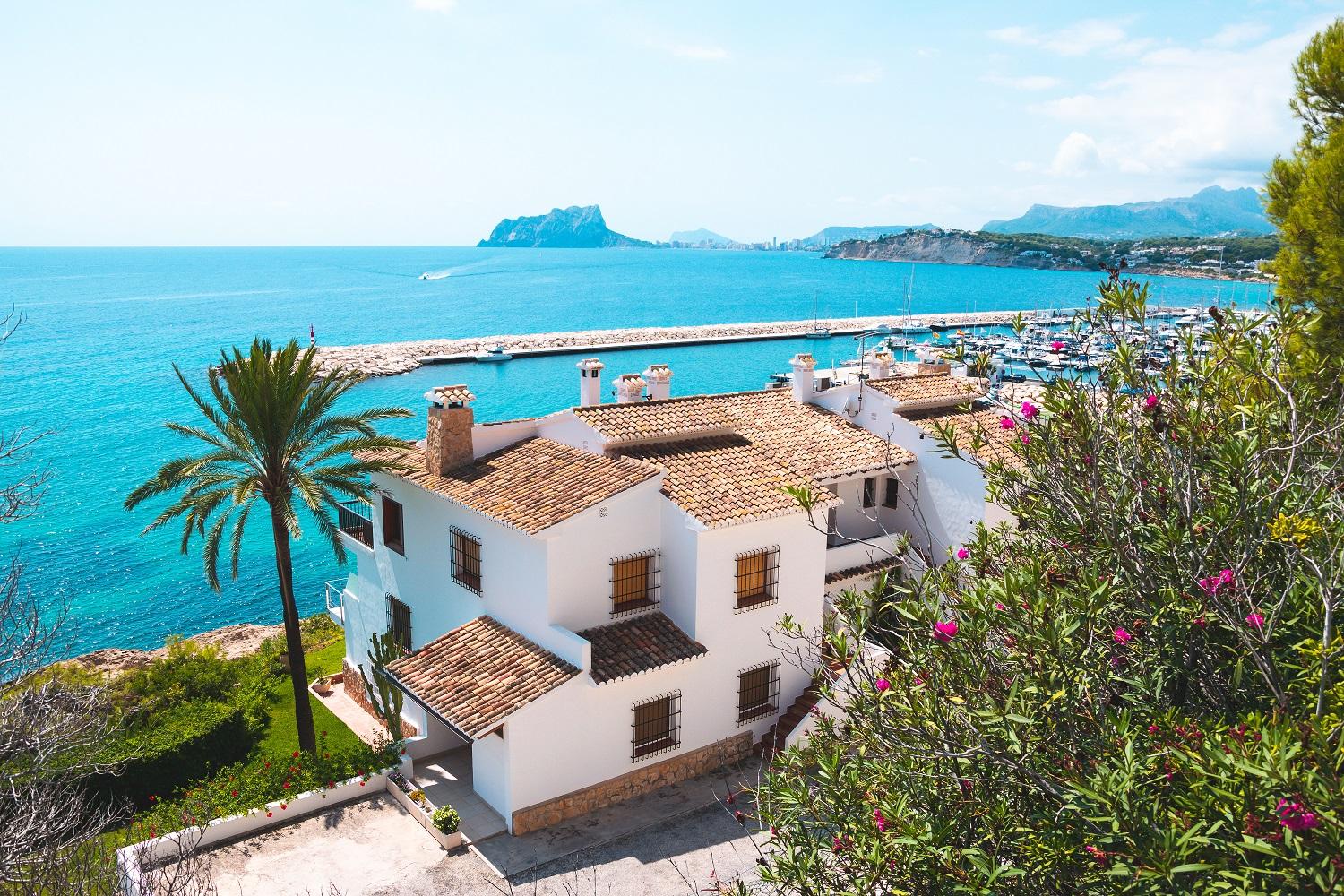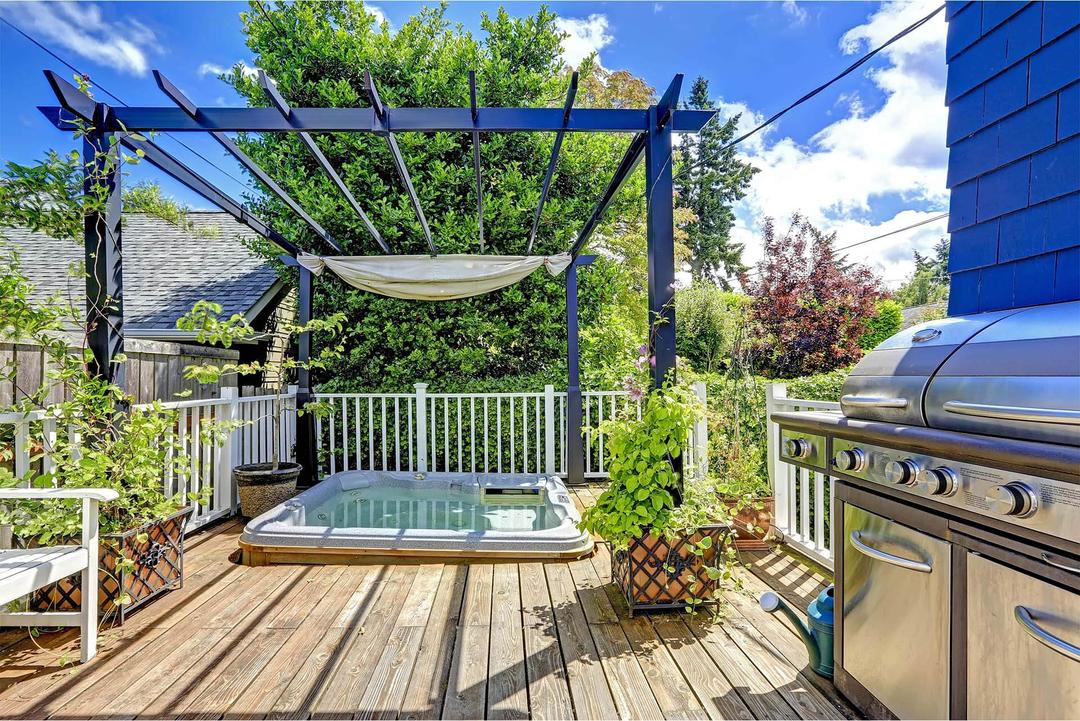
Buying a House and Living in Spain
The thought of buying a property in Spain excites many people who dream of a sunny lifestyle, rich culture, and picturesque coastal landscapes. However, before embarking on this exciting adventure, it is essential to conduct thorough research and planning. If you want to buy a house and settle in Spain, you should know exactly what to consider. This way, you can avoid potential hurdles when purchasing real estate.
The diversity of the Spanish real estate market—ranging from historic villas to rustic houses to modern seaside apartments—requires a careful analysis of your needs, budget, and long-term goals. You must particularly consider the legal and financial aspects of acquiring property. If you are a German looking to buy a house and settle in Spain, you are in the right place!
FALC Real Estate helps you find your dream property abroad. Additionally, we provide expert insights on what to consider when buying a house and living in Spain. Our experience and commitment enable you to take this exciting step with confidence and security.
Buying a House and Getting to Know Different Regions in Spain
A crucial aspect prospective buyers should keep in mind is the regional differences within Spain. Each region has its own characteristics, ranging from climatic conditions and local customs to real estate prices. An in-depth examination of the various regions allows you to choose a location that not only meets your aesthetic preferences but also your practical requirements. After all, you should feel comfortable not just in your new house but also in the surrounding area where your property is located.
What to Consider When Buying a House – Navigating the Spanish Real Estate Market
Buying a house in Spain can be an exciting and rewarding investment, but there are additional important aspects to consider to keep an overview and ensure a smooth purchase process. These include legal and financial aspects such as compliance with local building regulations, clarification of ownership rights, and a thorough review of the purchase contract.
Legal Aspects
The legal framework for acquiring property in Spain is an important factor. This includes applying for the NIE (Número de Identificación de Extranjero), dealing with tax obligations, and understanding the notarial process. It is advisable to seek advice from professionals like lawyers and to be accompanied by our professional real estate agents at FALC Real Estate. This way, you ensure that all legal aspects are handled correctly.
Financial Considerations
Financial considerations also play a crucial role if you want to buy a house and settle in Spain as a German. In addition to the actual purchase price of the property, additional costs such as land transfer tax, notary fees, and possibly mortgage interest must be considered. Working with our real estate agents can help you realistically plan your budget and identify the best financing options.
FALC Real Estate is here to help clear up any uncertainties and guide you through the entire process of buying a house in Spain. With our expertise and experience, we ensure that your dream home meets your expectations and that you enjoy a smooth and satisfying buying experience.
Applying for an NIE and Buying a House: Settling in Spain
If you want to buy a house and live in Spain, you should be well informed about what to consider. For example, it is particularly important that you need a Spanish tax number (NIE). The NIE is an individual identification number for foreigners and plays a crucial role in various financial transactions, including property acquisition. Here are some reasons why the NIE is necessary:
Signing the Purchase Contract (Escritura de Compraventa): The NIE is required to sign the notarial purchase contract for the property. Without this number, the sale cannot be legally completed.
Taxes and Fees: The NIE is necessary to pay the taxes and fees associated with property acquisition, including the land transfer tax (Impuesto sobre Transmisiones Patrimoniales) and VAT (IVA) if the seller is a developer.
Land Registry Entry: To register the property in the land registry (Registro de la Propiedad), the NIE is required. The land registry entry is important to legally secure your ownership.
Tax Obligations: The NIE is also required to fulfill your tax obligations in Spain, especially if you generate income from renting out the property or conduct other taxable transactions.
Bank Transactions: The NIE is usually required to open a bank account in Spain.
It is advisable to apply for the NIE early, as the process can take some time. The application can be made in person at the local immigration office (Oficina de Extranjeros) in Spain or at a Spanish consulate abroad. We are also happy to assist you with this process. It is important to present all required documents, such as a passport and application form, to expedite the process.
Real Estate Market in Germany and Spain: The Differences
The German and Spanish real estate markets exhibit some significant differences due to cultural, legal, economic, and geographical factors. From financing options and different pricing structures to legal aspects, there are some notable differences that make it important for German buyers to familiarize themselves thoroughly with the peculiarities of the Spanish real estate market. Here are some of the key differences between the two markets:
Cultural Differences
Germany: The German real estate market is characterized by stable and conservative demand. People tend to view real estate as a long-term investment, and renting is common in many cities.
Spain: The Spanish market is often subject to seasonal fluctuations. Many foreigners buy property in Spain as a vacation home or for retirement. The emphasis is often on leisure and quality of life.
Legal Factors
Germany: The German real estate market features a clear and transparent legal structure. The property purchase process is well-regulated, with clear rules protecting buyers and sellers.
Spain: The Spanish market has made progress in transparency in recent years, but there can still be differences in procedures and documentation. It is important to familiarize yourself with the specific legal requirements.
Demand and Supply
Germany: There is high demand for real estate in many German cities, which can lead to rising prices. There are often supply bottlenecks in urban areas.
Spain: The Spanish real estate market was previously characterized by oversupply, especially after the real estate crisis. However, in some regions, particularly on the coast, this has changed, and there is a strong increase in demand.
Price Levels
Germany: Real estate prices in Germany can be relatively high, especially in large cities. The market is driven by a stable economy and demand.
Spain: Property prices in Spain can vary greatly by region. In some areas popular with foreign buyers, prices may rise, while in other regions, there are still opportunities for affordable properties.
Financing Options
Germany: Financing real estate purchases is often more accessible in Germany. Low interest rates and various financing options support the market.
Spain: Financing in Spain can be more complex for foreigners, and interest rates can be higher. It is important to understand local banks and their conditions.
Use of Properties
Germany: Many Germans tend to buy properties to live in or rent out long-term.
Spain: In Spain, many foreign buyers purchase properties as vacation homes or for rental to tourists.
The differences between the German and Spanish real estate markets highlight the importance of thoroughly understanding the local conditions before deciding to buy property. In this complex process, FALC Real Estate stands by your side with comprehensive expertise and professional guidance to ensure that your property purchase in Spain goes smoothly and successfully.
Buying a House and Being Happy in Spain – What to Consider: An Overview
When buying a property in Spain, there are several things to consider to ensure a trouble-free acquisition. Here are some important aspects that prospective buyers should familiarize themselves with:
NIE: Applying for the NIE is a fundamental requirement for foreigners wishing to purchase property in Spain. This identification number is needed for various transactions, including completing the purchase contract and handling tax obligations.
Legal Review: A thorough legal review of the property is essential. This includes checking land registry entries, building permits, debts, and possible restrictions. It is advisable to work with an experienced lawyer to clarify all legal aspects.
Land Registry Entry: The entry in the land registry (Registro de la Propiedad) is crucial to secure ownership rights. After purchase, you should ensure that the property is properly registered.
Land Transfer Tax and VAT: Depending on the type of property and region, different taxes apply. The land transfer tax (Impuesto sobre Transmisiones Patrimoniales) or VAT (IVA) must be paid by you as the buyer. The exact tax situation varies by location and type of property.
Mortgage Conditions: If you are considering a mortgage for the property purchase, it is important to understand the terms and requirements of local banks. Financing options for foreigners may differ.
Reservation Contract and Purchase Contract: Before signing the final purchase contract, a reservation contract may be drawn up. It is important to carefully review all contract details and ensure that both buyer and seller understand their obligations.
Location Factors: Choosing the location is crucial to ensure you feel comfortable in your property. It is important to consider infrastructure, the local environment, availability of services, and the future development of the region.
Maintenance and Additional Costs: In addition to the purchase price, ongoing maintenance costs and community fees should be considered. These can vary depending on the type of property and affect long-term financial planning.
Inheritance and Estate Tax: It is advisable to be informed about inheritance and estate tax in the region. Regulations can vary, and it is important to understand the obligations that arise in case of a possible sale or transfer of the property.
Expert Advice: Working with experienced professionals like the agents at FALC Real Estate, lawyers, and tax advisors is crucial. Professional advice helps to eliminate uncertainties and ensure a secure purchase process.
Buying a House with FALC Real Estate and Understanding What to Consider in Spain
Do you want to buy a house and settle in Spain but still have questions about what to consider? Then feel free to contact us. Our experts at FALC Real Estate stand out for their excellent knowledge of the Spanish real estate market. With many years of experience and a comprehensive understanding of local conditions, they not only assist you in finding your dream property but also offer professional advice on legal aspects, financial matters, and all other facets of property acquisition in Spain. Trust our expert team, passionately committed to making your vision of owning a home in Spain a reality. Contact us now!
No more real estates
Can we help you
Would you like advice or do you have any questions?

&w=1080&q=75)



